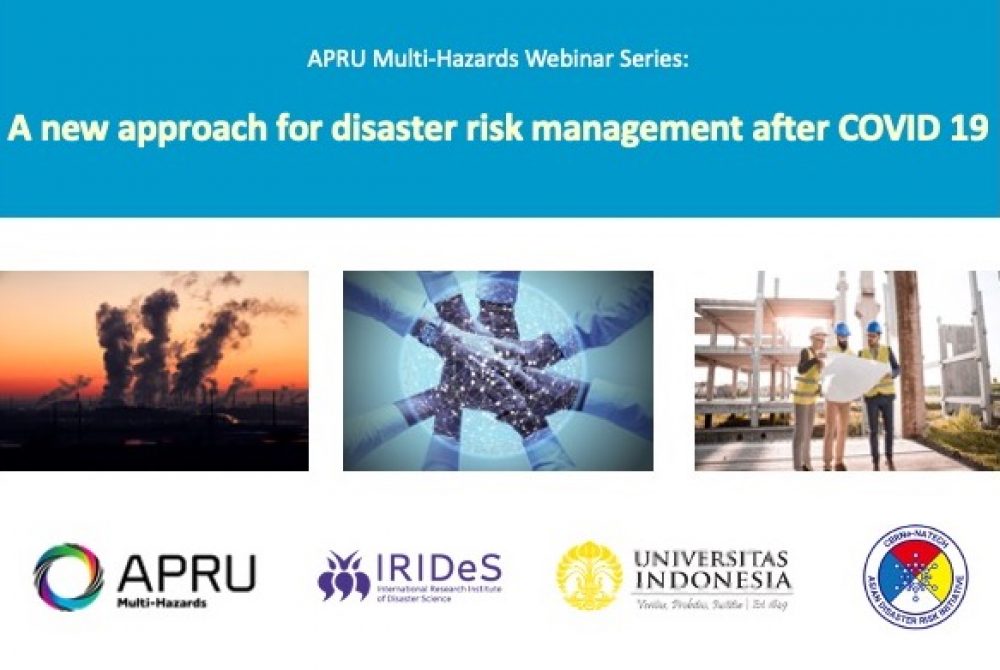The APRU Multi-Hazards Program successfully completed its second webinar series held in three sessions on September 30 and October 14 and 30, involving a total of thirteen speakers and 784 viewers. On the theme ‘A New Approach for Disaster Risk Management after COVID-19’, experts shared their experiences, and perspectives on preparedness and responses, introduced innovative tools and ideas on a scale-up of disaster risk management and addressed the need for connecting researchers and practitioners to identify most effective planning and actions.
Key international organizations, such as the International Federation of Red Cross and Red Crescent (IFRC), the United Nations Interregional Crime and Justice Research Institute (UNICRI) and the United Nations Office for Disaster Risk Reduction (UNDRR), explained how they have been supporting governments and regional initiatives to raise awareness for the importance of strong regional networks.
The webinars, were organized against the backdrop of the COVID-19 experience reminding us that disaster risks are not only natural but include a wide range of disaster types, such as biological, chemical, and industrial calamitous events as emphasized in the Sendai Framework for Disaster Risk Reduction adopted at the UN World Conference on Disaster Risk Reduction held in Sendai in 2015.
“APRU comprises 56 member-universities in the disaster-prone Pacific Rim region, and campus safety is crucial as universities hold larger numbers of students, faculty, and staff than lower schools,” said Takako Izumi, the director of the APRU Multi-Hazards Program, at the webinar.
“It is very important for universities to consider the risks of both natural and man-made hazards, as they usually keep dangerous substances, and any campus accident may threaten the surrounding community’s safety,” she added.
The webinars concluded with the launch of the new collaborative platform CBRNe-Natech Asian Disaster Risk Initiative (CnADRI). Based on the APRU Multi-Hazards Campus Safety Program, CnADRI will provide a space to share and discuss common challenges and identify solutions for various stakeholders.
To know more about the webinar series and the speakers, please visit the webpage.
To view a journal paper on managing and responding to pandemics in higher education institutions, please click here.

